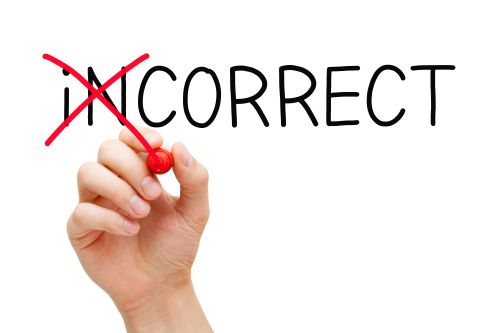APS-C vs. Full Frame Sensor – What’s The Best One To Have? Why Argue About It?
 There is a lot of confusing information on the internet about APS-C sensors (also called crop sensors) and Full Frame sensors (called that for being the size of a 35mm negative from the old days of film). What’s correct and what’s incorrect? Who really cares?
There is a lot of confusing information on the internet about APS-C sensors (also called crop sensors) and Full Frame sensors (called that for being the size of a 35mm negative from the old days of film). What’s correct and what’s incorrect? Who really cares?
My thoughts are “Why Argue About It?” and “Why Create So Much Confusion?” At the end of the day, you should always do the best you can with what you have. Oh, but yes, it may still be helpful to have one sensor size vs. the other depending on your core focus. However, you can get the job done in many cases with either APS-C or Full Frame. Some would argue (which is still the problem “arguing”) that you HAVE TO USE FULL FRAME. You don’t HAVE TO DO a lot of things in life. Don’t stress yourself out if you shoot with an APS-C sensor but think you just got to have Full Frame.
As a full time professional commercial photographer, I shoot with Full Frame Canon 5D Mark III’s, but I also have a Canon 70D APS-C sensor. So you might be thinking that must be nice and I wish that I could have both. Remember, for me it is my livelihood. There was a time that I had no where near the gear that I have now. So if you shoot with APS-C, think through, I mean really think through, the advantages and disadvantages before upgrading to Full Frame.
For example, it’s almost always about the GLASS (the lens). For me, I had rather have an APS-C camera with good glass or make that great glass than a full frame camera with a cheap kit lens. The challenging thing is not to get trapped by buying lenses for an APS-C camera that will NOT later work on a Full Frame camera should you upgrade. In my case, all my Canon L lenses will also work on the 70D as well. So I have some great glass for either APS-C or Full Frame. So when you buy great glass for an APS-C camera, make sure you can later use it on Full Frame.
There are advantages and disadvantages to both sensor sizes. Don’t get caught up in the confusion and drive yourself crazy. You are better off honing your skills with what you have, buying great glass and making some money doing what you love than stressing over which sensor to go with.
Happy Shooting!
If you enjoyed this post, please use the social icons to share it.
David Williams
Latest posts by David Williams (see all)
- How Will AI Change Professional Photography? - February 2, 2025
- Family Photographers vs. Commercial Photographers: Exploring the Differences in Approach, Purpose, and Technique - February 2, 2025
- Black and White Film Shot Of Our Golden Retriever: Trigger - February 2, 2022
- North Carolina Snow Images Shot In Franklin County - January 22, 2022
- Taking A Leap Of Faith: Hiring Your First Employee As A Creative - January 21, 2022




